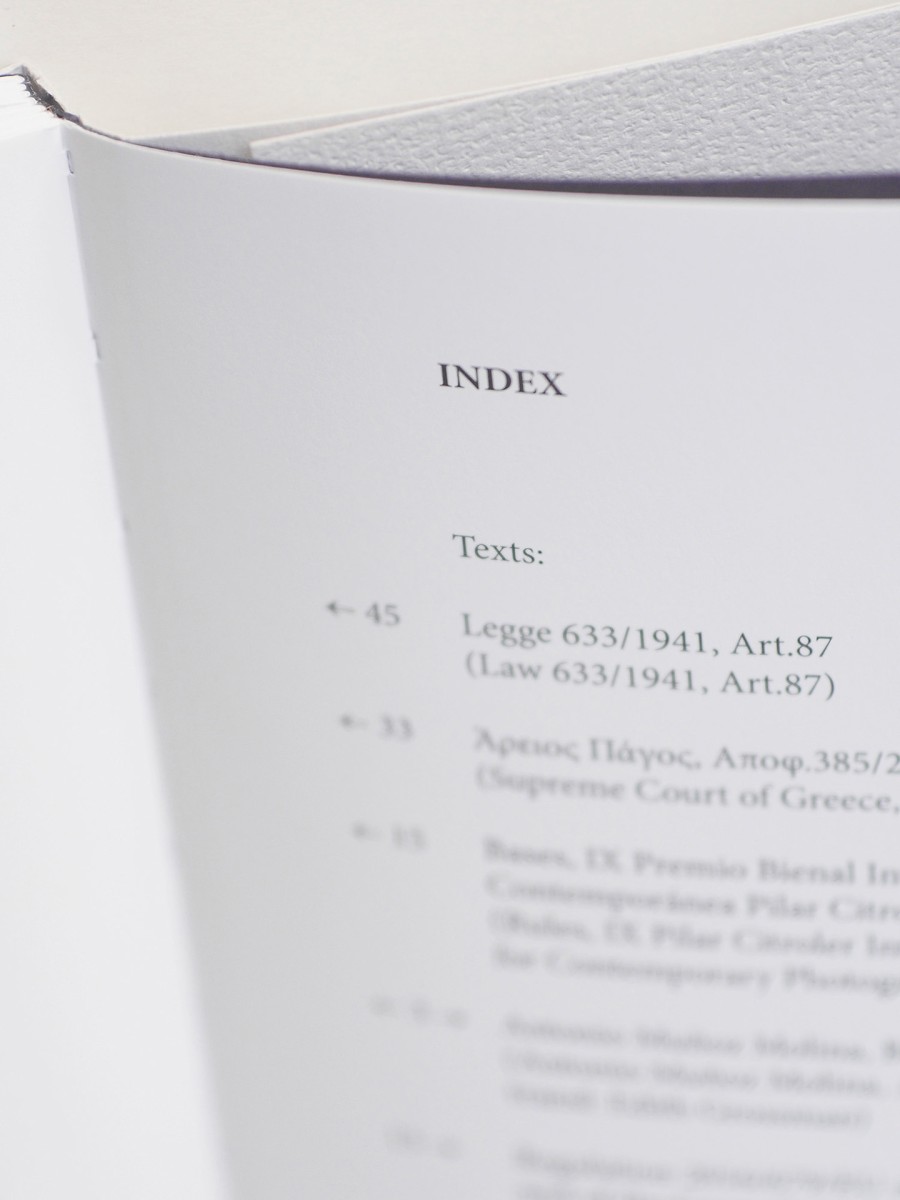
PERSONAE NON GRATAE
Yorgos Karailias
Selfpublished
2020
Spain
Cáceres
Yorgos Karailias
Ioannis Markakis
Offset
Ota-bind, softcover
978-84-09-19200-7
116
In 2016 the European Parliament approved a new General Data Protection Regulation, which was gradually incorporated in the National Law of each Member State by 2018. In this legal-regulative framework of data storage and processing, the image of the human face is treated as identificational and proprietorial personal data. Nevertheless, property, identification and defined consent to the use of the personal image insert criteria of market and governance into the social construction of the visible, thus annulling in a way what Ariella Azoulay has described as the Civil Contract of Photography: the citizenry that was created shortly after the medium’s invention, and its constant albeit tacit consent to unobstructed circulation of the visual information via the alternating roles of photographers, photographed and spectators. In other words, it threatens to crack both a customary inclusive citizenship –based on the transcendence of distinct boundaries between citizens and non-citizens, governors and governed– and its critical role in the visualization of the social and political, especially when it is on the verge of catastrophe.
PERSONAE NON GRATAE suggests a simulated scenario of factual extracts. Τhe frame of reference is the actual public space of Greece, Italy and Spain, the principal State-borders of the European Union and its main current biopolitical checkpoints. In this spacetime of discriminated citizenship, the anonymous protagonists may look synchronized with a reversed decisive moment: a simultaneous exclusion of their visual persona from the citizenry of photography and the collective visual archive.

















